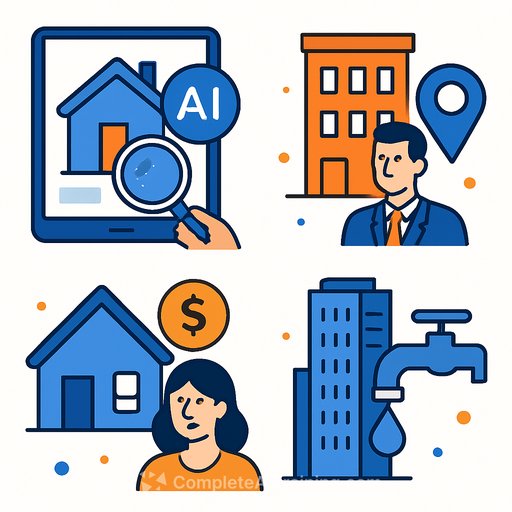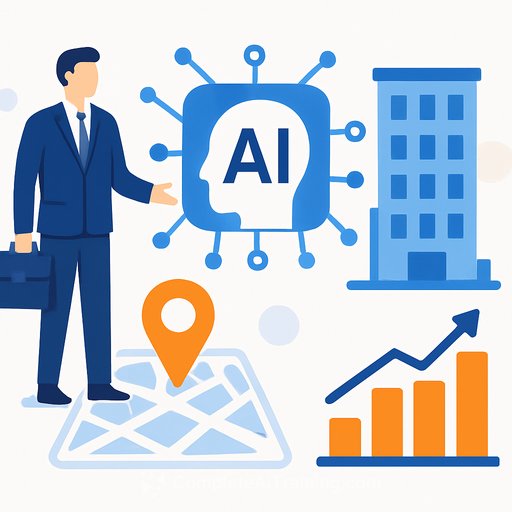RETTC Launches First AI Governance Framework for Rental Housing at OPTECH 2025
On November 19, 2025 in Las Vegas, the Real Estate Technology and Transformation Center (RETTC) announced a first-of-its-kind AI Governance Framework for rental housing providers and their technology partners. The framework was developed by RETTC's AI Working Group, a mix of housing operators and tech innovators focused on building practical guardrails for responsible AI use across the industry.
The goal is simple: accelerate useful innovation while protecting residents and staying aligned with laws that shape rental housing, including the Fair Housing Act and the Fair Credit Reporting Act. For owners, operators, and vendors, this is the clearest signal yet that AI isn't just a tech project-it's an operational standard that touches risk, revenue, and resident trust.
Why this matters for real estate and construction leaders
AI is already driving real outcomes: faster maintenance triage, better fraud detection, cleaner data flows, and more consistent resident communication. The challenge is deploying these tools without creating bias, privacy risks, or regulatory headaches.
RETTC's framework gives executives, asset managers, and proptech teams a common playbook to evaluate tools, set policy, and audit results. It also helps vendors align product design with the realities of housing law and onsite operations.
The core principles
The framework is guided by five pillars you can operationalize today:
- Fairness: Prevent discriminatory outcomes, especially in leasing, screening, and pricing.
- Transparency: Make AI use clear to teams and residents. Document models, data sources, and intended use.
- Privacy: Limit, secure, and lawfully process resident and prospect data. Set retention timelines.
- People-Centered Governance: Keep humans in the loop for high-impact decisions. Train staff and set escalation paths.
- Accountability: Assign owners, measure results, audit for bias, and fix issues fast.
What the framework means in practice
- Policy first: Create an AI use policy for corporate and onsite teams. Define approved tools, data rules, and review cycles.
- Vendor due diligence: Require bias testing summaries, privacy controls, and logs for high-risk use cases (screening, pricing, marketing audiences).
- Human review: Keep a person in the decision chain for leasing denials, adverse actions, and anything tied to eligibility or pricing.
- Audit cadence: Quarterly checks for accuracy, drift, and disparate impact. Document outcomes and remediation.
- Resident communications: Be clear when AI is used, how data is processed, and how to request human review.
High-impact use cases worth a closer look
- Maintenance: Ticket routing, parts prediction, and work order prioritization to cut response times and costs.
- Fraud reduction: Document verification and anomaly detection for applications and payments.
- Resident experience: AI-assisted responses for routine inquiries with seamless handoff to on-site staff.
- Revenue ops: Decision support for pricing and renewals with guardrails to avoid discriminatory outcomes.
Compliance guardrails you should not skip
- Map every AI use case to the Fair Housing Act. Maintain documentation of how you test for and mitigate bias. Reference: HUD overview.
- For screening and adverse actions, align with the Fair Credit Reporting Act and state/local laws. Keep clear logs and notices.
- Update your data inventory: what you collect, where it lives, who can access it, and how long you keep it.
Five questions to ask every AI vendor
- What data do you use, and who owns outputs?
- How do you test for bias and accuracy, and how often?
- Can you provide audit logs and model documentation?
- How do you support human review and explainability for key decisions?
- What is your incident response plan for model errors or data exposure?
Affordability and supply: the bigger picture
RETTC connects responsible AI use to the industry's supply and affordability goals. If operators can reduce friction in operations, shorten time-to-lease, and lower make-ready and maintenance costs-without harming fairness or privacy-more units become attainable and sustainable to manage.
As Kevin Donnelly of RETTC put it, the sector can't solve housing challenges with yesterday's tools. This framework is a practical roadmap to build with intent, keep residents protected, and scale what works.
What to do next
- Appoint an AI governance lead and cross-functional working group (ops, legal, IT, compliance, vendor management).
- Inventory AI use cases and tools across your portfolio. Classify them by risk and resident impact.
- Roll out a lightweight policy now, then iterate quarterly as your testing and controls mature.
- Pilot with one or two high-value, low-risk workflows (maintenance triage, document automation) before touching leasing decisions.
- Train teams on bias awareness, data handling, and escalation procedures.
About RETTC
RETTC, strategically aligned with the National Multifamily Housing Council, convenes leaders across technology and real estate to move the industry forward on responsible innovation and housing supply. The AI Governance Framework continues that mission by turning legal, ethical, and operational requirements into workable standards for owners and partners.
Upskill your team
If you're building internal literacy around AI policy, workflows, and vendor evaluation, explore focused programs for operations and technology roles: AI courses by job.
Your membership also unlocks:





